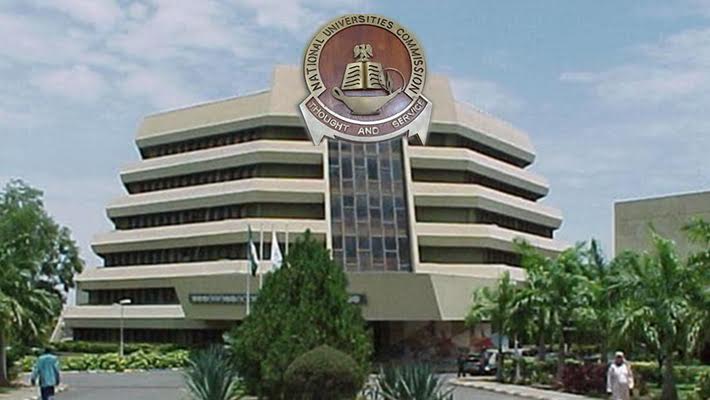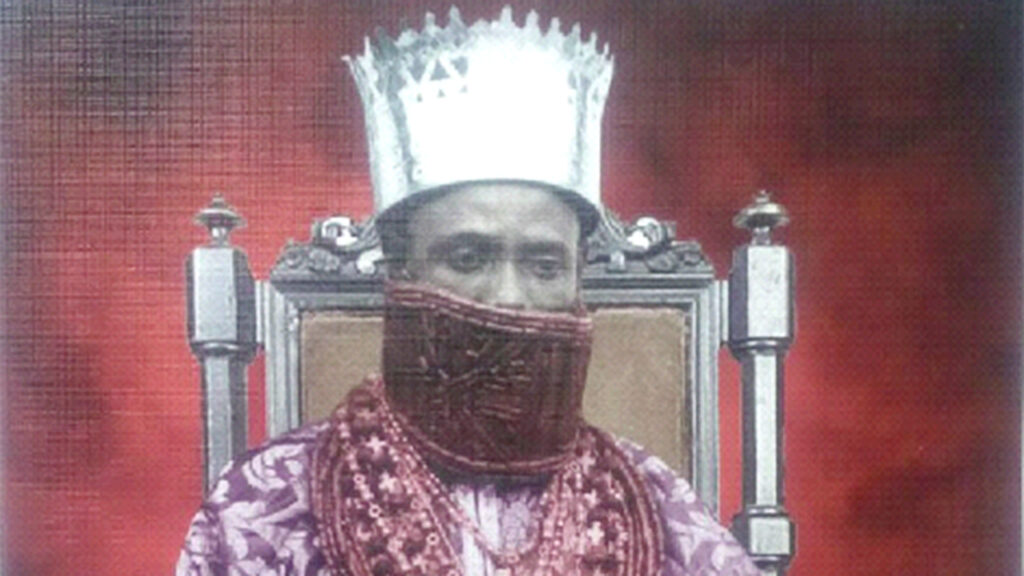
DESPITE the high number of private universities in the country, many Nigerian students often prefer schools close to Nigeria’s borders to acquire higher education, even when private universities in Nigeria are undersubscribed. GBENGA SALAU, in this report, provides insight to why Nigerian students go to universities with poor infrastructure and quality control measures in neighbouring countries.
Nigeria, currently, has 273 universities with private universities accounting for over 50 per cent of the institutions. There are 148 private universities, 62 Federal Government established universities and 63 state owned universities, according to the data on the website of the National Universities Commission (NUC).
However, in spite of the high number of tertiary institutions in Nigeria, many Nigerian students often travel to foreign countries for university education.
But of late, private tertiary institutions close to Nigeria’s borders have become very attractive to Nigerian students too, with a huge number of students heading to Benin Republic, Chad, Niger Republic, Sudan, Togo, Ghana and Cameroun in the bid to acquire higher education.
A Nigerian student, Olawumi Bukola Oluwapelumi, who studied at Bestower International University (Centre International Universitaire Des Meilleurs (CIUM), said she couldn’t write Joint Admission and Matriculation Board (JAMB) ,as she wasn’t feeling too strong when the examination was being written then.
“I was seriously sick when students were writing the examination. I actually had the plan of waiting till the following year, but I have a cousin studying there so he advised me to enroll instead of wasting another year at home
“I got admission into Ecole Professionnelle Specialisee (EPS) but the school was having issue when I got to second year, I decided to transfer to Bestower International University where I graduated from.”
According to her, before she was admitted, she visited the school to buy the admission form. “And I was asked few questions after submitting my documents just more like an interview.”
Also speaking on why she sought admission to a university in Benin Republic, Arike Rashidat Ogundeyi, who studied in Institute Superieur De Communication D’organisation et de Management (ISCOM), claimed that the affordable tuition fees was one of the attractions.
She listed others to include good security, healthy environment, and opportunity to learn and speak foreign language (French).
She, nonetheless, disclosed that the initial bait was the text message she got offering her 80 per cent scholarship to study in the institution.
“I clicked the link sent to me; it directed me to the school’s website. Then, I got the address from there and travelled to Benin Republic to confirm if it truly exists. But I wasn’t given the scholarship, it was later someone told me if I had showed the message to the registrar, I would have been given the scholarship.”
Of note is that students that should be accommodated in Nigeria’s private universities often end up in these foreign institutions. And it is not that private universities in Nigeria are oversubscribed, as majority of them are operating at abysmally low carrying capacity.
Research revealed that of the over 2.4 million university admissions granted by federal, state and private universities between 2017 and 2022, only about 175,645 admissions were granted to candidates by private universities.
Also, the acting Executive Secretary of National Universities Commission, Mr. Chris Maiyaki, recently said that 10 per cent of the two million students in Nigerian universities are enrolled in the country’s 148 private universities.
This means on average, about 1345 students were admitted by each of the universities, although data provided by a newspaper disclosed that only three institutions, Al-qalam, Covenant and Afe Babalola universities have over 10,000 students each, while only 10 of Nigeria’s almost 150 private universities have 5,000 students and above.
The executive secretary also disclosed that each year, close to two million candidates apply for admission into Nigerian universities, but only between 500,000 to 700,000 candidates are admitted.

This implies that only 35 per cent of the students seeking admission finally get a slot with about 65 per cent looking for alternatives including going to neighbouring countries to study.
It is, therefore, not surprising that following the recent ban on recognition for certificates issued by universities in Benin Republic and Togo that the National Association of Nigerian Students (NANS) in Benin Republic and Togo disclosed that there are about 15,000 Nigerians studying in these countries.
Also, in 2022, the Ghana High Commission in Nigeria said there are over 5,000 Nigerians studying in tertiary institutions in Ghana.
Similarly, it was revealed during the Sudan crisis that about 5500 students were studying in the country.
Sharing his thought, a former lecturer in one of the universities in Benin Republic, Dr Oladeji Olatunji, said Nigerian students seek admission in Benin Republic universities because they are looking for easy certificate as most of the schools are mushroom.
“They are just slightly better than the tutorial centres in Nigeria. There are one or two universities that are good, but most of them are terrible.”
Olatunji maintained that some of the students won’t seek admission into the universities if they were in Nigeria.
Also commenting, Dr Monsurat Aiyegusi, who once lectured in one of the universities in Benin Republic, said the major reason is the students’ inability to meet up with Joint Admission and Matriculation Board (JAMB’s) examination cut off mark for admission in Nigeria.
“All they need is to obtain a form and thereafter present their O’level results to get admitted as undergraduate students. However, in some cases, entrance exam or interviews are conducted.
“Other issues include parents flaunting having children schooling outside Nigeria. So, many parents do not take into cognisance the pros and cons of having a child outside his/her immediate environment but are only interested in the status quo when talking with other parents and relatives about their children in other countries.
“Another reason is peer group influence. Some students opt for such universities because some of their friends or relatives are already studying there.
“The notion of freedom from parents/home also makes some students to prefer universities in such countries because they use it as a means to be free to do whatever they like including being free from engaging in chores and other activities at home.”
On the claim that the fees are cheaper, Olatunji disagreed, saying the schools can’t be cheaper.
“In the school that I taught, the fee was about N150,000 to N200,000 per session and then there are still schools in Nigeria where students pay way less than that. So, it is not because of costs and definitely accommodations aren’t cheap there.”

According to investigations by The Guardian, many of the private institutions in these countries that share border with the country, Nigerian students end up attending schools that are not even at par with their Nigerian counterparts in terms of standard, quality, infrastructure, teaching and research.
Little wonder, the Ministry of Education had to do a blanket blacklist of the universities in Benin Republic and Togo recently.
This was after an investigation exposed one of the institutions in Benin Republic for engaging in certificate racketeering with many Nigerians pointing accusing fingers that there are more of such universities in Benin Republic, Togo and other neighbouring countries.
But beyond the certificate milling allegation, some Nigerians argue that these universities are largely sub-standard and are affiliates or satellite campuses of foreign-based universities with quality control mechanisms mostly absent.
The institutions are also said to have weak infrastructure, with institutions housed in rented, inadequate and in some cases incomplete structures.
In some cases, prospective students do not have the required numbers of credit passes before they are admitted as such students register for remedial courses to make up the shortfall while simultaneously undertaking undergraduate courses.
Lamenting the standard of the schools, Ayegusi said though the university she taught has two separate five-storey buildings and a two-storey building, universities with rented bungalows and flats just like tutorial centres operating a fully accredited university are all around.
Also sharing his experience, Innocent Duru, who enrolled for the conversion of Higher National Diploma (HND) to Bachelor of Science (Bsc) programme, had to abandon it mid-way into the first semester. He said it was all about collecting money and issuing certificate without impacting knowledge.
“I need knowledge not just certificate. There was no lecture, no reading materials, and we were asked to do assignment and prepare for exams and project, and all that. I felt it was all about collecting money and that wasn’t okay for me. I needed the knowledge and not just certificate.”
Olatunji provided more insight about the poor quality control of the system, saying a student can register in university A, and after one semester leaves for university D claiming he or she is a final year student in university A and he or she will be admitted to complete his or her studies as a final year student.
“They won’t ask for transcript or anything. In fact, it is even possible for students to graduate within six months, no transcript, because they are all competing for students,” Olatunji stated.
No doubt, there would be a reversal of the ban on certificates from Benin Republic and Togo.
When the ban is lifted, how can Nigerian private universities be made more attractive to students who cannot get admitted in government-owned higher institution of learning?

Aiyegusi suggested an increased awareness among the citizens about the available private universities in Nigeria and the competitive advantage that they have.
“So many undergraduates in such countries cannot defend most of the certificates they obtain. There are so many recorded cases of certificate buying and racketeering over there unlike schools in Nigeria.
“Lecturers incentive is also very important. Lecturers who teach over there are sometimes confidants of the parents of these students from secondary schools. Once they get employed over there as a result of better pay, accommodation and discount offers for referring students to the school, it is very likely for them to win some of our students over here to these countries,” Aiyegusi stated.
On the quality of teaching staff in the schools, Olatunji said most of them do not employ experienced staff.
“What most of them do is, when students graduate from their schools, they employ them to start teaching. My former school then was one of the very few schools that insisted on employing master’s degree holders, but others didn’t mind. I usually say it jokingly that I can’t employ graduates from Benin Republic because of the quality, I can’t trust their quality.”
With all the loopholes, why is this country’s education body unperturbed about the illegality going in their institutions?
Olatunji said while the supervisory body is strict about francophone programmes meant for their students, they pay little or no attention to the Anglophone programmes.
“For their own students who are admitted in the francophone session, they are usually strict, but for the Anglophone programmes, they know that certificate is what they want, so they are basically giving what we want.
“We want it easy, we want it cheap, and within two or three months, you get your certificate and you are out. So, it’s just business, it is demand and supply. But do they do that for their own students? No, they don’t.”
According to Olatunji, most of the universities run Anglophone and Francophone programmes but the Anglophone students usually dominate.
“In the university I taught, the francophone students on admission are between 60 or 100 while the Anglophone students are about 1000.
“So, it is basically just business for them. Their ministry of education doesn’t even employ Anglophone graduates. It is that bad. Nigerians that graduate from Benin Republic don’t get employed in Benin Republic because they know that they don’t have what it takes, they are just there for the certificate.”
Do the students across the Anglophone and Francophone sessions pay the same school fees, Olatunji said the francophone students pay lower.
Meanwhile, the JAMB recently released its 2024 Unified Tertiary Matriculation Examination (UTME) results which showed that only 27 per cent of the 1,904,189 candidates who sat for the exams scored 200 and above, while 1,402,490 students which is about 73.7 per cent scored below 200.
Many of the students who scored below 200 may still want to be admitted in a university within and outside Nigeria, while some who scored above 200 may still not get admitted which may also forced them to look for alternative.
Although the ban on certificates from Benin Republic and Togo may have limited the space and opportunities, but some students who have passed the West Africa Examination Council Examinations (WAEC) and wanted to start their tertiary education may seek admission outside Nigeria since JAMB result is not needed and JAMB score are needed in any Nigerian university whether public or private.
On the way out since private universities in Nigeria have the space, but the students do not have the JAMB requirements for admission, a Professor at the Department of Educational Management, Ayo Alani stated that the requirements for admission into universities in Nigeria cannot be circumvented.
“We have laid down regulations that must be followed. You must have five credits at two sittings at WAEC exams and then passed JAMB examination. There is no way you can circumvent that but if they cannot secure admission into universities in Nigeria, they can seek opportunities outside the country but we need to consider the rigour they pass through before obtaining the first degree.
“Some of the private universities are substandard in terms of facilities, academic content and qualification of lecturers.”
Also, the recent pronouncement by the minister of education that students who should come forward for admission in Nigerian tertiary institutions should not be less than 18 years, might further push more students across the border.
Alani stated that it is possible that more parents might take their children to schools outside Nigeria as a result of the policy but the government can also come up with another policy that if a student gets admitted before 18 years, then he or she cannot be mobilised for the National Youth Service Corps (NYSC).
“But some of them may still say I do not have the intention of working in Nigeria, even if you do not mobilise me for NYSC, I can migrate to other developed countries for employment. But if we have that provision, some of them will think twice because how many of them will be able to travel abroad to get employment.”
Alani, however, argued that if the provision of the National Policy on Education had been followed strictly, a child will not get admission into a university at the age 16.
He said that the National Policy on Education stipulates that a child is supposed to be six years old before he or she starts primary school education, then spend six years in primary school, which means he or she should complete primary education at 12 years and then spend another six years in secondary school.
“This implies a child should be 18 years when he completes secondary education. So, if we follow the provision of the National Policy on Education strictly, it will not be possible to gain admission into the university at the age 16.
“Recently, I was discussing with a teacher in England, where he said that there is room for advance level prgramme in the UK for a student that completes secondary education at 16, a programme that has been abolished in Nigeria.
“If a child finished secondary education at 16 in the UK, he would gain admission into a college spending two years before gaining admission to the university. That is the provision and they follow it strictly.
“Although Open University in United Kingdom (UK) does not have restriction on age of entry but regular universities, students must be 18 years before you can gain admission.
“But we cannot implement it in Nigeria suddenly, because of children who have gained admission into secondary schools that will graduate at the age of 16 in some years to come. Are we saying they should wait for another two years before gaining admission into universities, that will not be possible, as most parents will kick against that. It is something we have to do not in the short term. We must have some years before preparing for the implementation of the policy.”













